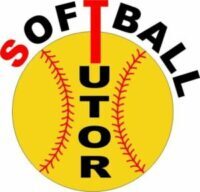
Begin with an end in mind. It is hard to build an effective practice plan if we do not consider the importance of an annual plan or a Yearly Planning Instrument. Where does softball training session planning fit in the timing of the season and what does your team need to accomplish to continued progress towards playing to their best potential when it counts, the main competition. Without an working plan, you can still make use of a practice plan as long as you are continually assessing your teams progress from game to game and practice to practice.
Softball Training Session Planning
Building a practice plan needs to start with the prediction of how your athletes are going to respond to the activities that you schedule during that 90 or 120 minute session. The first consideration needs to be the overall performance goals that you and your team have set for the season and where your team is currently at in relation to those goals. You also need to consider the age, developmental stage and skill level of your team to maximize not only lasting confidence but also performance success during the session.
It is useful as well to consider the long term plan for your team as well as the short term goals. We don’t often think about how our team is developing through their playing careers. By including this in your planning, you can not only take the pressure off for having to get everything done this season while at the same time making the entire experience more enjoyable for your players. need to also consider the long term An assessment training session is a good place to start in your season so that you can establish a base for improvement.
In order to maximize your team’s potential, you need to acquire as much knowledge as you can about the game of softball, the mechanics, the tactics and where all of that fits in the scope of your teams developmental stage and abilities. Often we want to move our teams through the season with as skill as possible and as quickly as we can. By designing practice sessions with a purpose and with your athletes in mind, your team will improve much faster without the stress of expectations that are not aligned with their abilities.
It’s easy to forget that we are also coaching people. By sharing with your athletes the purpose of the practice plans and establishing outcome goals as a team, you will find a much higher level of adherence to principles and a better chance of self direction and focus when the team is together.
Critical Components of a quality practice plan:
- Objective
- Age of athletes
- Location of practice
- Time of practice
- Practice Structure
- Introduction
- Warm Up
- Main Section
- Cool Down
- Drill Diagrams
- Drill equipment
Build a plan that someone else can run
Your practice plan should be easy to follow and have enough detail that there is no question on what happens next. This is one of the reasons why the critical components are necessary. If for some reason you can not attend due to an unforeseen reason, another coach should be able to step in without any confusion.
Building your Practice Plan
Tracking your team’s development and using that information to improve is going to be the secret to your success. If you spend your time more on the process of advancing the skills of your team and include them in that process, you will surely have a successful season. It is important to use specific markers that will show the progress towards the desired performance goals. Be sure to base the success of your team on the relative potential of your team. This is what they are capable of and how you and the team think you can improve by the time the main competition arrives.
By using assessment and monitoring procedures, you can prioritize training factors that you are going to focus on in your practice plans. This is one of the reasons that a practice plan should include a section that is dedicated to solidifying overall fundamental skills that might be lacking on your team.
The preparation phase or off season is about assessment, team building, solidifying fundamental skills, introducing mental skills and building a physical base for training. This is the time of year when your team is building skills and learning how to work together. As the competitive season approaches, your focus will turn to more tactical skills while refining fundamental technical skills. If your team is working on mental skills, the focus will turn to mental strategies that are introduced during exhibition games and ice breaker tournaments. If your team is involved in physical training, the focus will be on converting strength to power and speed. The physical component will likely be done in the gym with a physical trainer.
In planning your practice session during this part of your season, ensuring execution of basic skills is your priority. Some say that practice makes perfect but the truth is that perfect practice makes perfect execution. It is important to resist the temptation to build on advanced skills if the fundamental skills that are required are not yet refined. This is where designing practice plans that build confidence while building skills sets the tone for the type of season you are going to have.
Preparation Phase Practice Planning
Practices during the season or, competition phase are about refining skills and maintaining physical conditioning if that is a part of your program. Mental training during this phase would be focused on maintaining mental training skills and refining mental training strategies in game conditions. By keeping a notebook or some sort of recording system during games, you can keep a running tab on what needs to be worked on while ensuring that the priority skills are improving as a team.
Competition Phase Practice Planning
Tapering Practice Plan
The tapering practice should be no longer than one hour in length, which is shorter than a regular season practice. This is where your team is recovering and regenerating in preparation for the upcoming main competitions. The focus is on simply solidifying technical and tactical skills with more of a focus on building confidence and eliminating stress and fatigue. This is not the time to focus on adaptation which will demand unavailable physical and psychological resources from the athletes that are reserving it for performance success.
Transition Phase Practice Planning
The transition phase is where players are hopefully playing other sports and keeping their body fit for the beginning of the net season. A simple strength and conditioning program is beneficial depending on how much rest and recovery is needed after the season finishes. There should be no pressure on the players to be playing more ball because the last thing you want is for them to be burned out when they return.
